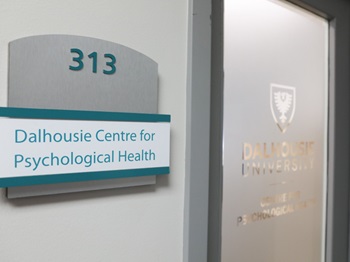Clinical Psychology
The Clinical PhD program is a CPA accredited program, which follows the scientist-practitioner model. Clinical psychology is part of the science of psychology and we therefore emphasize both research and clinical practice. The program typically takes six to seven years to complete, on average, including a one-year clinical residency/internship. Note: The Clinical Psychology program does not offer a terminal Master’s degree. Clinical psychology students may be initially admitted at the Master’s level, where they will complete 1–2 years of coursework (and a research project, not a Master's thesis), before transferring into the PhD program.

Our Mission
The Clinical Program is founded on a scientist-practitioner training model and is committed to prioritizing equity, diversity, and inclusion in all components of training. Graduates of the program will be thoroughly grounded in both the science of psychology and the methods of clinical practice, the integration of research and clinical practice, and the promotion of social justice in research and clinical practice. Clinical training focuses on evidence-based clinical practice. The program’s generalist training allows students the opportunity to gain knowledge and experience in working with individuals across the lifespan as well as with individuals from diverse backgrounds.
Students are also provided with the opportunity to expand their learning into areas of interest (e.g., child psychology, adult psychology, neuropsychology, addictions, health psychology). Students who want extensive training in both science and clinical practice are the best fit for our program. Our graduates are prepared to work as clinical psychologists in a range of settings and are particularly valued in settings receptive to the integration of research and practice.
Our Principles
- Scientist-Practitioner Model of Training
Professional psychology advances itself through the scientific method.
- Faculty Mentorship
Faculty who are scientist-practitioners model the values this program wishes to instil in students. Faculty prioritize mentorship to meet the needs of students in the program.
- Cultivated Critical Thinking
Critical thinking skills are foundational skills for both science and practice and are fostered at all levels of training in the program.
- Development-Based Learning
A developmental model of supervision tailors feedback and supervision to a student’s level to advance their learning.
- Acceptance and Respect of Diversity
Ethical thinking and practice permeates all aspects of the program; hence, the well-being, dignity, and respect of all peoples are paramount.
- Collaborative Approach
A collaborative framework where graduates learn to be effective members of multidisciplinary teams leads to better client-centred care and research.
- Beyond the Classroom Learning
Training is most effective if provided through multiple methods, including coursework, research (i.e., comprehensives projects and dissertation), practica, clinical workshops, and a full year internship/residency.
Our Goals
To provide training consistent with the scientist-practitioner model by providing graduate students with experience in and knowledge of the science and practice of psychology, and the integration of science and practice.
Objective 1: To train graduates who are skilled researchers
Objective 2: To train graduates who are skilled clinicians
Objective 3: To train graduates who integrate science and practice
Objective 4: To train graduates who are skilled at integrating an understanding of human diversity into research and clinical practice
To provide generalist training that ensures breadth in research, practice, and teaching skills, thus making students competitive for internship and employment positions, and prepared to take on a range of careers in the field of clinical psychology.
Objective 5: To train graduates who have a broad knowledge of clinical skills that are applicable to work with clients of all ages.
Objective 6: To train graduates who have a broad knowledge of clinical skills in order to work with clients who present with a wide range of difficulties related to mental health and well-being
Objective 7: To train graduates who have a broad knowledge of clinical skills in order to work with clients from diverse backgrounds
- To ensure that students develop the necessary skills for careers as Clinical Psychologists, as described in the MRA, and detailed in the CPA 2023 Accreditation Standards, in each of:
The six general core content areas of psychology: biological bases of behaviour; cognitive-affective bases of behaviour; social-cultural bases of behaviour; individual differences, diversity, growth and lifespan development; historical and scientific foundations of psychology; psychopharmacology.
The eight foundational competencies: individual, social, and cultural diversity; Indigenous interculturalism; evidence-based knowledge and methods; professionalism; interpersonal skills and communication; bias evaluation and reflective practice; ethics, standards, laws, policies; and interprofessional collaboration and service settings.
The six core functional competencies: assessment; interventions; consultation; research design and test construction; program development and evaluation; and supervision.
Objective 8: To train graduates who have strong knowledge in the core content areas to the level of preparedness necessary to enter the profession of clinical psychology
Objective 9: To train graduates who have clearly developed all core foundational and functional competency areas to the level of preparedness necessary to enter the profession of clinical psychology


